
We made it to 2021! What a ride this last year has been. If there has been one message loud and clear, it is that we need to be responsible for our own health. The healthier we are the safer we are in this day and age. This is the traditional message for this time of year, and everyone has at least one or two health-oriented New Year’s resolutions. Yet most people fail their resolutions within two or three weeks. Usually, we end up feeling bad about ourselves and blame it on a lack of will power or some other personal deficiency. But what if there are other reasons for our failures? What if changing our habits is not about will power at all? What other way is there to start a new positive habit?
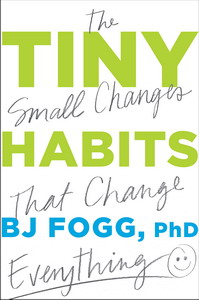
I have been reading a book called “Tiny Habits” by BJ Fogg, Ph.D., the founder of the Behavior Design Lab at Stanford University. He has been researching these very questions for the last 20 years and has come up with some pretty life-changing discoveries about how humans actually change their habit-based lives. He has employed these discoveries in loads of clinical research and has coached over 40,000 people in the use of these techniques. Since it is that time of year where we promise to change our lives for the better, this seemed like a good time to share some of his research.

The first and possibly biggest message is that you can let go of all those judgments about yourself for not achieving your previous year’s goals. The problem is that we have never been taught the skills of how to change. It is like we wanted to learn how to ride a bike but no one told us that the bike needed to have wheels first. We are missing the basics of how change happens and why. It is not because change is hard or because we lack motivation. It is how we approach change that is the problem. Change is a process that follows certain rules. We need to learn those rules. But information alone is not enough. Information supports us and guides us, but ultimately change is a feeling process. Simply put, if the change we are making does not feel good to us, then we are not going to do it very long. This is where the title of the book comes in – Tiny Habits. When the change you are trying to make is so small that it is easy, you feel good being able to do it. Big changes come from lots of tiny changes that feel good to do.
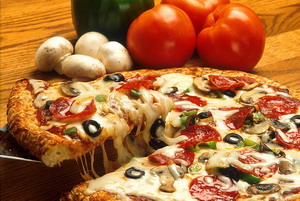
Changing your diet is a good example. Diet is massive. It encompasses huge parts of our life. There are thousands of bits and pieces to the habits that make up our diet. It is more than just what we eat. It is so intimately tied to virtually every type of social encounter, from what you bring to Thanksgiving dinner with the family to what you snack on as you play games on your computer. There are all the beliefs you were trained into as to what good food looks like, and all the favorite tastes you acquired through your life. Then there is the endless supply of “shoulds” we are told by media, so-called experts, well-meaning friends, and random strangers. Everybody seems to have diet opinions. This brings up another aspect of change – change is very personal. For change to feel good to us it needs to be in alignment with our values, purpose, and beliefs. The purpose is especially tricky, as we have all sorts of subconscious drivers behind our actions. You may be consciously fully on board with adopting a sugar-free healthy lifestyle, but if you grew up associating being loved with getting homemade cookies, that subconscious association is going to tank your best efforts to avoid sugar.

Back to tiny habits. One of the first things Dr. Fogg talks about is using existing regular events in your life as reminders for the tiny new habits you are playing with. One of the common ways your mind avoids the effort, however small, of thinking or trying something new is to simply forget to do it. You can overcome this by linking the new behavior with another well-established behavior. A funny example he uses is every time he goes to pee, he does two push-ups against the wall. The push-ups are the tiny new behavior he is learning to get him exercising more, while the need to pee happens anyway regularly. So the formula is: “whenever I do ______ then I will also do ______.” The tiny behavior may seem silly, but silly is fun and easy – exactly what we are after. After the tiny behavior becomes automatic then you can add a little bit more to it.
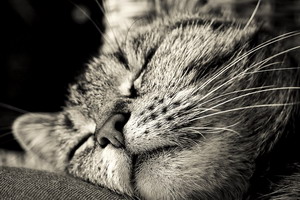
Change is scary on a deep level. We have made it this far doing what we have always done. Who knows what a change might cause? Here tiny comes to the emotional rescue. Tiny things are less scary. A slight change to our normal routine feels okay to do. A big change is frequently too much. So focus on tiny steps. Permit yourself to take as much time as you need. Permit yourself to change direction if where you are headed with even tiny changes does not feel right for you. Remember, every step must feel good to you. If you try something and it does not feel good, back up and try something else or make the step even smaller. Steps that feel bad stop you in your tracks. We want to believe that we can manifest instant change. We are driven by the instant gratification boogeyman. We want to reach the endpoint yesterday. Sorry, that is not how life happens. An acorn does not turn into an oak tree overnight. Life is about slow, small, incremental changes. Big “wins” or changes don’t work. Look at the lives of Lotto winners. Within five years they are all right back where they started or worse. The habits needed to be rich are like diet habits. There are a ton of them and they are learned slowly and usually painfully.
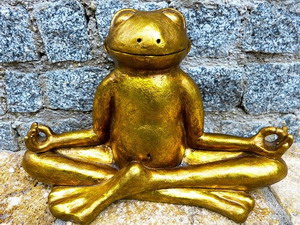
I am not saying big instant change never happens. Epiphanies happen. Religious conversions happen. Life-changing experiences happen. But these can not be planned or made to happen. I know people that have been meditating their entire life and yet have never had a transcendental experience. Effort does not bring about these instant big changes, but tiny efforts can bring about tiny changes that build up into big changes over time.
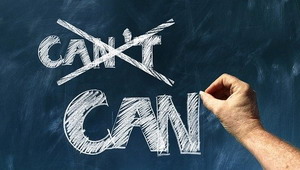
The fundamental understanding that Dr. Fogg came to is that developing any desired behavior requires three things to come together – motivation, ability, and a prompt. Motivation and ability exist within a specific relationship to each other. Motivation can vary from high to low and ability can vary from easy to do to hard to do. The higher the motivation the more you are willing to do hard things, while when motivation is low you are only willing to do easy things. The prompt is some event that triggers you into action. Now for an extra bit of information from the research – the easier something is to do, the more likely it is that it will become a habit. It does not matter whether something is good or bad. Once again, the tiny changes win. Tiny is easy. Tiny is motivating because accomplishment feels good, even tiny accomplishments. If you have behaviors that you are trying to stop, then anything that makes them more difficult to do helps you to stop them. Likewise, anything that makes a behavior feels less good (like some negative consequence to the behavior) reduces motivation and decreases the expression of the behavior.
I have just touched the surface of this book. If you would like to make changes in your life, I highly recommend reading it. It provides a blueprint for change that makes change doable and easy. Here is my link to the book.

Do I have any recommended health changes for 2021? You betcha! Number one is love life! Number two is to get more sleep. Almost everyone is sleep-deprived in this culture. Make a tiny change, like getting to bed just 15 minutes earlier or turning off any media a half hour before bedtime so you can start to wind down. Cut out linoleic acid from your diet – that is the type of oil in seed oils like canola, soy, corn, sunflower. Avocado, olive, and coconut oils are good, so start small by using these when frying foods. Eliminate sugar and flour containing foods from your diet. Again, start small by substituting foods made with healthy sugar alternatives and low carb foods. Move your body more. Build some muscle. Challenge your balance. Connect with friends. Get creative…
Take care,
David
